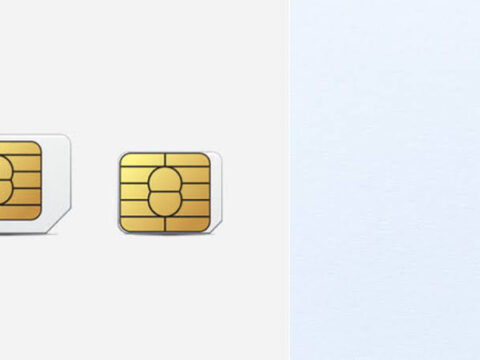Pure water, an essential beverage in Nigeria, is not only a thirst quencher but also a thriving business opportunity. As clean and safe drinking water becomes increasingly necessary, starting a pure water business presents an avenue for entrepreneurs to cater to this demand.
In this article, we’ll delve into the intricacies of establishing a pure water business in Nigeria, from formulating a business plan to obtaining the necessary licenses and equipment.
Pure water, a vital necessity, is sought after by those without access to treated water and individuals who prioritize health. The ease of distribution via bottles and water jugs has propelled its popularity, creating an ideal market for aspiring small business owners. This article offers a detailed guide on how to embark on this venture successfully.
Formulate a business plan
Creating a comprehensive business plan is the first step. Determine your operational scale—will you operate locally, in a town or city, or on a larger level? Scale impacts equipment size and costs.
Start with local operations and essential equipment, then expand as the market grows. Your business plan should outline equipment and staffing costs, adjusting according to your operations’ size.
Obtain licensing and compliance certificates
To run your business legally in Nigeria, secure the necessary licenses from local authorities, health permits from the health department, and tax compliance certificates from the IRS. Prioritize health permits due to the consumable nature of the product. Opening a business bank account is also essential.
Secure startup funding
Calculate the required funding for overheads, initial inventory, office equipment, staff training, insurance, and more. Consider options like factoring, bank loans, tapping into savings, or seeking investors to fund your startup.
Select a central production location
Choose a central location for your operations, minimizing transportation costs. Distribution costs often exceed packaging costs, emphasizing the need for centrality.
Hire and train employees
Employ a range of staff, from equipment operators and delivery drivers to office personnel and marketers. The right team is vital for efficient operations.
Devise a marketing strategy
Study the pure water market to identify unexploited niches. Crafting a sound marketing strategy is pivotal to success. Differentiate your product through branding, health benefits, affordability, or personal customer interactions.
Implement an advertising plan
Craft compelling promotional messages highlighting the health benefits of your water. Gradually invest in marketing channels with the best conversions.
Develop partnerships to expand distribution
Participate in health fairs and form partnerships with businesses, schools, and retail outlets. Prioritize larger-volume water sales for offices and schools while keeping smaller bottles for restaurants and supermarkets.
Steps to Establish a Pure Water Business in Nigeria
1. Write Your Business Plan:
A detailed plan is crucial for funding, operations, marketing, and management. A business plan is your blueprint for success.
2. Purchase Land:
Acquire land for your factory. One plot is generally suitable for small-scale operations. Prices vary by location.
3. Construct Bungalow:
Construct a factory building, including finishing, furnishing, and borehole installation. Budget for N5 million to N10 million.
4. Install a distillation system:
Choose a water purification system, such as distillation or UV filtration. Costs range from N1 million to N10 million.
5. Buy Automatic Sealing Machines:
Acquire sealing machines for packaging. Koyo sachet water sealing machines are recommended, costing around N400,000 to N650,000.
6. Buy a Supply Truck:
Invest in a reliable supply truck to ensure efficient distribution. A used European truck costs around N3 million.
7. Employ factory workers:
Assemble a diverse team, including operators, packagers, cleaners, drivers, marketers, security personnel, and management.
8. Get NAFDAC Approval:
Seek NAFDAC approval for your production. The process may take several months and involves following specific requirements.
Frequently Asked Questions (FAQs) about Starting a Pure Water Business in Nigeria
Q1: What is a business plan, and why is it important for starting a pure water business?
A1: A business plan is a comprehensive document outlining your business goals, strategies, and financial projections. It’s essential for securing funding, guiding operations, and serving as a roadmap for your business’s success.
Q2: What licenses and permits do I need to start a pure water business?
A2: You’ll need business licenses from local authorities, health permits from the health department, and tax compliance certificates from the IRS. These ensure legal compliance and the safety of your consumable product.
Q3: How can I secure funding for my pure water business startup?
A3: You have various funding options, including factoring, bank loans, tapping into savings, and seeking investors. The amount you need will depend on factors like overheads, initial inventory, and equipment costs.
Q4: What factors should I consider when selecting a location for my pure water business?
A4: Choose a central location that minimizes transportation costs. Access to distribution points is crucial, as distribution costs tend to be higher than packaging costs.
Q5: How do I create an effective marketing strategy for my pure water business?
A5: Study the pure water market to identify untapped niches. Differentiate your product through branding, health benefits, affordability, or personalized customer interactions.
Q6: What advertising methods should I use to promote my pure water business?
A6: Craft compelling promotional messages highlighting the health benefits of your water. Start small with advertising efforts and gradually increase investment in the most effective marketing channels.
Q7: How can I expand distribution for my pure water business?
A7: Participate in health fairs and establish partnerships with businesses, schools, grocery stores, and retail outlets. Focus on larger-volume water sales for offices and schools and keep smaller bottles for restaurants and supermarkets.
Q8: What is NAFDAC approval, and why is it important for my pure water business?
A8: NAFDAC approval is the regulatory authorization from the National Agency for Food and Drug Administration and Control. It’s crucial for ensuring the safety and quality of your product as well as building trust with customers.
Q9: What are the essential equipment and materials needed for pure water production?
A9: Essential equipment includes distillation systems or UV filtration units, automatic sealing machines, packaging materials, and a reliable supply truck for distribution.
Q10: How can I calculate the total startup costs for my pure water business?
A10: Calculate costs for land acquisition, construction, equipment, packaging materials, staff salaries, marketing, and other expenses. Your business plan will help you estimate these costs accurately.
Q11: What are the benefits of starting a pure water business in Nigeria?
A11: The demand for clean and affordable drinking water is high due to population growth and inadequate government water supplies. Pure water businesses serve this demand while offering a profitable venture for entrepreneurs.
Q12: Is NAFDAC approval a lengthy and complex process?
A12: Yes, obtaining NAFDAC approval can be time-consuming and involves adhering to specific requirements. It’s essential to start the process early and follow all necessary steps to ensure regulatory compliance.
Q13: How can I ensure a consistent and reliable water supply for my pure water business?
A13: Sink a borehole and install overhead tanks to ensure uninterrupted water supply. Adequate water availability is crucial for maintaining production and meeting market demand.
Q14: What qualities should I look for when hiring employees for my pure water business?
A14: Seek employees who are skilled, reliable, and have a strong work ethic. Hiring the right team ensures efficient operations and contributes to the success of your business.
Q15: Can I start a pure water business in any part of Nigeria?
A15: Yes, the pure water market is available in both urban and rural areas across the country. However, factors such as population density and competition may influence the specific location you choose.
Q16: What are the advantages of different water purification methods, such as distillation and UV filtration?
A16: Distillation and UV filtration are effective methods for water purification. Distillation removes a wide range of contaminants, while UV filtration uses ultraviolet light to kill bacteria and viruses. The choice depends on your budget and production scale.
Q17: How can I differentiate my pure water brand in a competitive market?
A17: Differentiation can be achieved through branding, emphasizing health benefits, affordability, or building personal connections with customers. Finding a unique selling proposition sets your brand apart from competitors.
Q18: What role does packaging play in the success of a pure water business?
A18: Packaging is crucial for maintaining product quality, hygiene, and customer appeal. Properly packaged water reflects positively on your brand and encourages consumer trust.
Q19: Are there potential challenges to consider when starting a pure water business?
A19: Challenges may include regulatory hurdles, competition, fluctuating water availability, equipment maintenance, and distribution logistics. Thorough planning and adaptability are essential to overcoming these challenges.
Q20: What resources can I use to stay updated on industry trends and regulations for my pure water business?
A20: Stay informed by following industry publications, attending relevant workshops and conferences, and engaging with industry associations. These resources can help you stay ahead in a dynamic market.
Conclusion
The pure water business in Nigeria presents a lucrative opportunity. As the government struggles to provide clean water, the demand for affordable, safe drinking water is high.
Starting a pure water business requires careful planning, investment, and adherence to regulations. By following this comprehensive guide, you can navigate the intricacies of establishing a successful pure water business in Nigeria.




